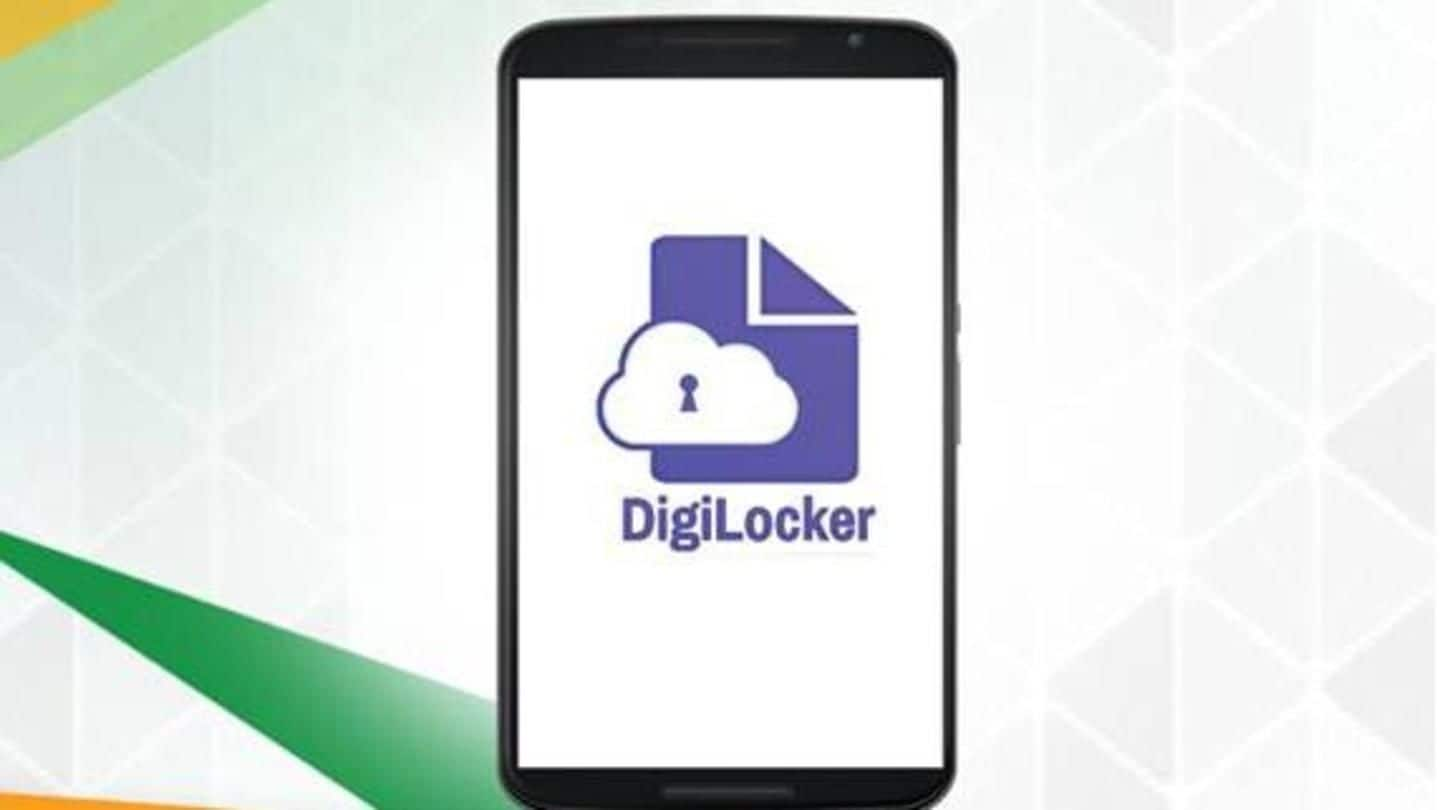
All your questions about the government's 'DigiLocker' facility answered
What's the story
Many people often worry about losing or misplacing important documents like Aadhaar card, driving license, PAN card, certificates, etc. while carrying them physically.
But the government has an innovative solution to keep all essential documents "safe in the cloud".
Eliminating the need to carry them physically, the government launched the cloud-based "DigiLocker" document storing facility in 2015.
Here's everything you should know about DigiLocker.
About
What exactly is DigiLocker?
PM Narendra Modi launched the "DigiLocker" service in 2015 as part of the government's "Digital India" initiative.
DigiLocker is a secure, online document storing facility operated by the government aimed at achieving paperless governance.
The platform is meant for storing, issuing, and verifying documents digitally. The free service can be availed through the DigiLocker website or mobile app (available for Android and iOS).
Signing up
How can you register for DigiLocker service?
Users only need enter their mobile number to "Sign up" on the DigiLocker website or app after which they receive an OTP for authenticating the number.
They are asked to create a username (number/email) and password. Next, users can choose to link their DigiLocker account to Aadhaar voluntarily.
Once all these steps are completed successfully, users can start uploading and storing their documents.
E-Locker service
DigiLocker provides storage space of 1GB to users
Users get 1GB cloud storage space on DigiLocker for storing essential government-issued documents and IDs like Aadhaar card, PAN card, driving license, passport, voter ID or other official educational documents like certificates, mark sheets, etc.
Users can also store Uniform Resource Identifier (URI) links to various e-documents issued by government agencies or departments.
They can also sign their e-documents digitally through DigiLocker's "eSign" facility.
Documents
What are the different types of documents on DigiLocker?
On DigiLocker, there are two types of documents: "Issued" and "Uploaded" documents.
Issued documents are those records that are directly issued by government departments/agencies and saved in your DigiLocker account. They are in electronic format only - URI (link) of the documents - issued from the original source.
On the other hand, "uploaded" documents are the ones that are manually uploaded by the user.
Uploading
How can you upload documents to DigiLocker?
Uploading documents to DigiLocker is very easy. After logging in, users can click on "Uploaded Documents" and select "Upload" to save documents from their computer/device.
However, uploaded documents (scanned copies) are not considered authentic as they are not verified by any government department.
Only "issued" documents that are manually "pulled" by users (or automatically pushed after linking Aadhaar) into their accounts are verified documents.
Categories
Who are issuers and requesters?
There are issuers and requesters on DigiLocker platform. Issuers are registered government agencies that can issue e-documents to users. Issuers may include the Income Tax Department, UIDAI, Ministries, CBSE, Registrar Office, etc.
Whereas requesters are government departments that offer services to citizens (civic bodies, revenue department, passport offices) or organizations that require documentation (banks, telecom operators, railways, etc) for ascertaining an individual's identity.
Advantages
What are the advantages of DigiLocker?
DigiLocker users can access documents round-the-clock from any part of the world. The stored documents are kept safe and secure; it also ensures the privacy of users. The eSign feature allows users to self-attest their documents.
DigiLocker reduces the time taken by authorities to verify citizen's documents. It enables easy storing, verifying, and sharing of documents.
It also eliminates the use of fake documents.